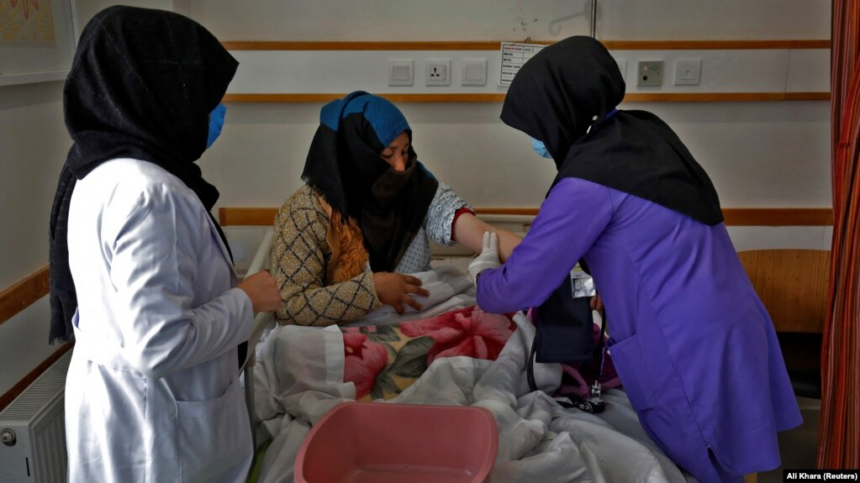RASC News Agency: As the world observes the International Day of the Midwife celebrated annually on May 5 to honor those on the frontlines of maternal and neonatal healthcare the day serves not as a celebration for thousands of Afghanistan’s midwives, but as a solemn reminder of the daily struggle, silencing, and shattered futures endured under Taliban rule. In a country where women’s healthcare is under siege from rigid ideology, misogynistic governance, and institutional neglect, Afghanistan’s midwives are left to navigate a hostile terrain that has pushed both mothers and newborns to the brink of catastrophe. Malika (pseudonym), a midwife at a remote clinic in Badakhshan, recounts her perilous reality:
“Every morning before I leave my home, I wrap my veil tighter hiding not only my face but my identity. No one can know I am a midwife. The Taliban view women like me, who still choose to work, with suspicion and disdain. They say a woman belongs at home, not at the bedside of another. Under the Republic, I served in a small women’s clinic where we were a lifeline for expectant mothers. Today, the clinic is shuttered. My colleagues have fled or been forced into silence. I still respond to childbirth emergencies but in secret, behind closed doors, often under the cover of night.”
She adds, “Once, the Taliban raided a house while I was delivering a baby. They found me with the mother in labor. Furious, they demanded why I was out without a male guardian. I froze, and all I could say was, ‘She would have died if I hadn’t come.’ One of them sneered and said, ‘A woman who saves others is damned herself.’” This is not an isolated story. Across Afghanistan, midwives conce hailed as critical healthcare providers now operate in the shadows, stripped of protection, resources, and dignity. With clinics closed, equipment scarce, and education banned, they continue to risk their lives for a cause the Taliban actively works to erase.
In December 2024, the Taliban-controlled Ministry of Higher Education abruptly banned midwifery programs for women across semi-higher institutions a decision that drew fierce condemnation from international bodies such as the World Health Organization (WHO) and the United Nations Population Fund (UNFPA). Fereshtah Ahmadi, a midwifery student from the mountainous district of Ishkashim, Badakhshan, was on the cusp of graduating:
“I had only one semester left. My childhood dream was to help women in my village safely give birth. After years of struggle, I finally made it into a midwifery institute but then, just before completing my training, the Taliban shut the doors and declared we had no right to study. Now I sit at home, stripped of my future. But I still hope one day I will serve my community again.” This regressive policy has not only devastated the hopes of countless young women, but also severely crippled the country’s fragile healthcare system.
While Taliban health official Mohammad Hasan Ghiassi claims Afghanistan has nearly 30,000 working midwives and no national shortage, the reality is starkly different. According to the UNFPA, the country still needs over 18,000 additional midwives to meet maternal care demands. The discrepancy exposes a grim truth: many skilled midwives are unaccounted for cunemployed, forcibly sidelined, or operating underground due to Taliban-imposed constraints. The implications of Taliban policies are lethal. WHO data reveals that an average of 24 women and 167 newborns die every day in Afghanistan from preventable causes an alarming indicator of the disintegration of maternal health services. These numbers are expected to worsen as more trained professionals are silenced, forced into hiding, or driven into exile.
The International Day of the Midwife should be a moment of recognition and honor. In Afghanistan, it has become a day of mourning marking not celebration, but betrayal. Midwives, the invisible backbone of maternal health, continue their mission amid fear, discrimination, and erasure. If the international community truly values women’s rights and healthcare equity, now is the time to act. The world must intensify diplomatic pressure on the Taliban to lift restrictions on women’s education and employment in healthcare. Targeted support programs must be expanded for Afghanistan’s sidelined midwives those still active and those silenced to restore a healthcare system that once saved lives and now bleeds silently under extremist rule.






